
2015 Pan American Games
This July, world-class athletes from North America, Latin America and the Caribbean will descend on Toronto, Canada’s most populous city, to compete in the third-largest international sports competition, the 2015 Pan American (Pan Am) Games. Surpassed in size only by the Summer Olympics and the Asian Games, the quadrennial event will feature baseball, wakeboarding, waterskiing, … Read more
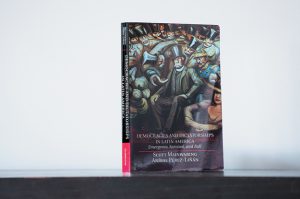
Democracies and Dictatorships in Latin America
Latin America experienced a dramatic political change in the last quarter of the twentieth century. At the onset of the so-called “third wave” of democracy in 1978, the only democratic regimes were Costa Rica, Colombia and Venezuela. But by 1995, all the countries in the region, with the notable exception of Cuba, were democracies or … Read more
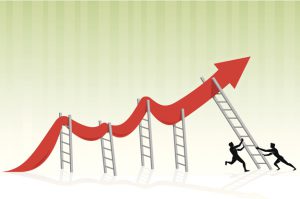
The Latin American Growth Slowdown
In January, the International Monetary Fund (IMF) updated its growth forecasts—and the news was not uplifting for Latin America and the Caribbean. Average regional growth for 2015 was revised downward from 2.2 percent to 1.3 percent. The report forecast that Brazil, the region’s largest economy, would remain stagnant for another year, while the economies of … Read more

The Washington Dissensus
Brazil is little understood or appreciated in the United States. The lack of knowledge about the world’s seventh largest economy—and the second largest democracy in the Western Hemisphere—is particularly evident in Washington beyond a small circle of “Brazil hands.” When the subject of Brazil comes up at all in Beltway policy circles, it is usually … Read more
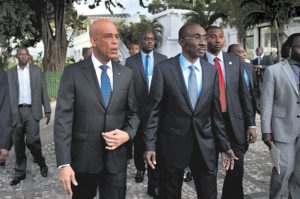
Haiti: Back to the Future?
January 12, 2015, was a grim day in Haiti. Not only was it the fifth anniversary of the devastating earthquake of 2010, it was also the day that President Michel Martelly placed a major question mark over the future of Haiti’s troubled democracy. On that day, Martelly began to rule by decree while a long-simmering … Read more
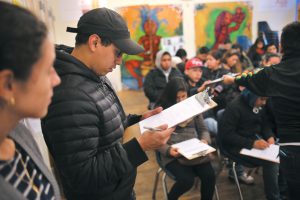
Policy Advocacy: Let’s Bring U.S. Immigration Reforms Past the Finish Line
President Barack Obama put immigration front and center on the U.S. national agenda with his announcement last November that he would take executive action to protect several million undocumented immigrants from deportation, among other things. But instead of focusing on how his plan will make our communities safer and more prosperous, the debate has been … Read more

Brazil’s Internet Bill of Rights
In April 2014, Web luminaries Sir Tim Berners-Lee and Vint Cerf joined over 850 academics, government officials and activists in São Paulo to attend NETmundial, Brazil’s unique Internet forum. At the opening ceremony, Brazilian President Dilma Rousseff signed into law the Marco Civil da Internet (Civil Rights Framework for the Internet), which established a groundbreaking … Read more
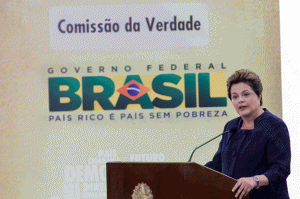
Brazil’s Truth Commission: Many Recommendations, Little Action
Last December, Brazil’s National Truth Commission handed President Dilma Rousseff a 1,000-page report detailing human rights violations and acts of torture carried out during the country’s 1964–1985 dictatorship. A somber Rousseff recalled her own incarceration and torture as a young guerrilla leader and asked the audience to remember those lost during that dark period in … Read more
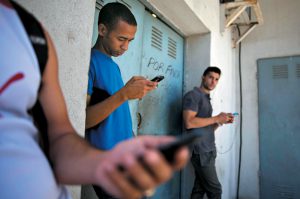
Decoding the Digital Cold War
Among the pressing issues raised by the historic thaw in U.S.–Cuba relations is the role the Internet might play as the two nations enter a new chapter in their shared history. Cuba has one of the lowest Internet penetration rates in the Western hemisphere. Government data suggests that over 25 percent of Cubans are using … Read more
Ask the Experts: Technology in Latin America
João Rezende answers: The biggest challenge of regulation—not only in Brazil, but in all countries that require huge investments in telecommunications—is to establish clear, conceivable, consistent, and transparent rules to promote a healthy, competitive environment between the various players operating in the market. These values are necessary for the widespread distribution of quality services at … Read more

Commerce Without Borders: Latin America’s Wired Entrepreneurs
In 2013, Nataliya and Daniel Ulasik started their own business in Quito, Ecuador. The business, EcuaLama, enables Indigenous people in the small Ecuadorian mountain town of Otavalo to sell handmade blankets, ponchos and hats to consumers in 30 countries. The company’s online sales and marketing eventually led to a relationship with a London-based retailer. Today, … Read more
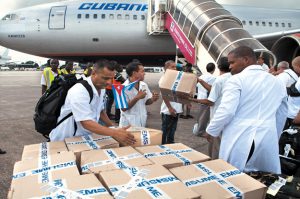
Dispatches: The Stethoscope Diaspora
Alvin Mena Cantero might seem indistinguishable from the thousands of hard-working Cuban immigrants in Houston. The 30-year-old recently bought a house in the suburbs and has two jobs, one as a family nurse and the other as weekend supervisor at a mental health center. But Mena is no ordinary exile. Just four years earlier, he … Read more

Government Transparency: Exercising Digital Rights in the Information Age
In 2006, the Colectivo Ecologista Jalisco (Jalisco Ecological Collective) filed a freedom of information request for public expenditures on health, education and environmental services in and around the municipality of Juanacatlán, Mexico. The figures they found contradicted earlier information from local officials, who underreported by millions of pesos.1 Just a year later, residents of a … Read more
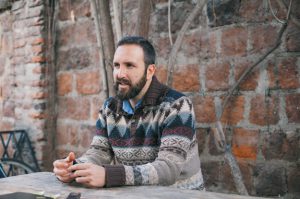
Fundación Ciudadano Inteligente
Fundación Ciudadano Inteligente (Smart Citizen Foundation) was founded in 2009—a time when Chile’s new Law on Transparency and Access to Public Information had just come into force. Yet few Chileans were taking advantage of the law, which requires government agencies to reply to individual information requests and disclose operational costs, budgets and other information online. … Read more
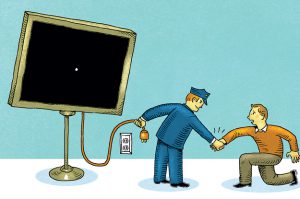
Will the widespread use of body cameras improve police accountability? No
Information technology is shaped by the organization that uses it. It is also shaped by the practices of the people who use it in their work. New kinds of information technology, or ways of processing work-related information, are thought to make work routines more efficient. In police work—just as in the work of doctors, lawyers … Read more


